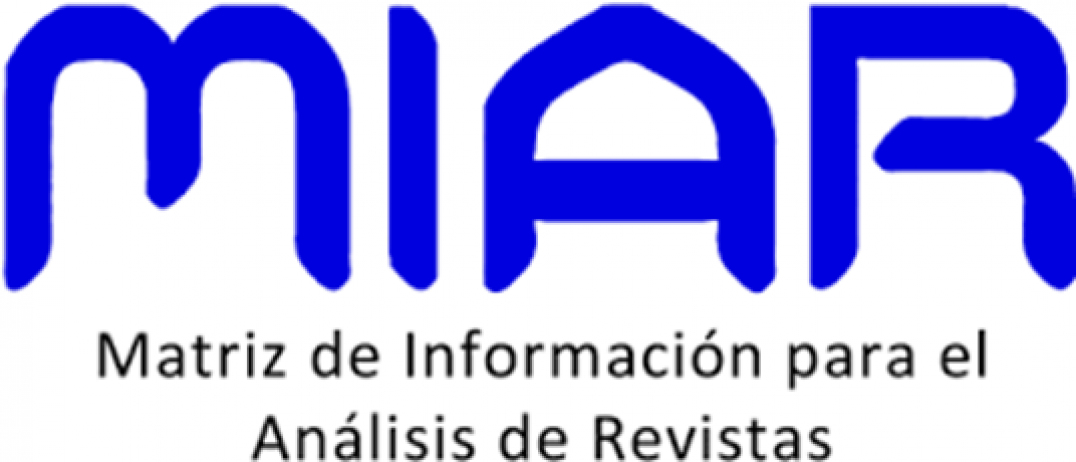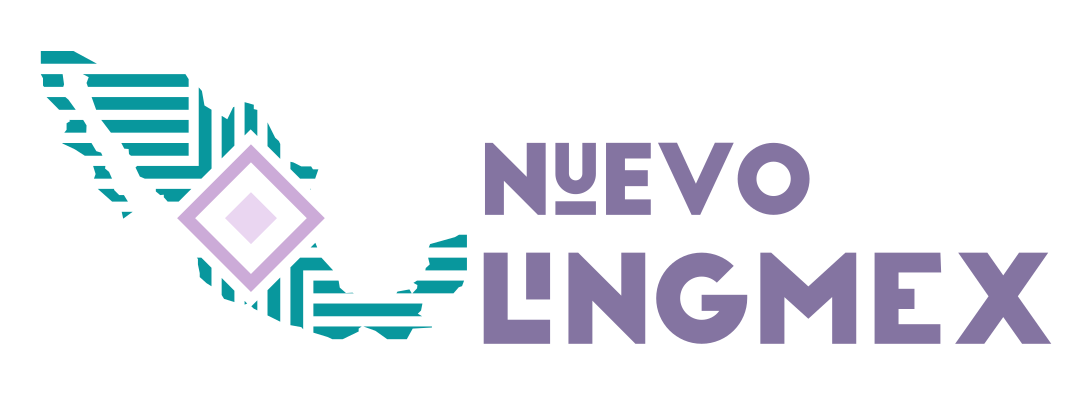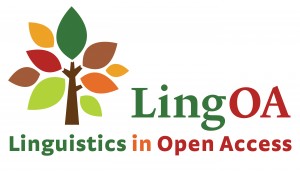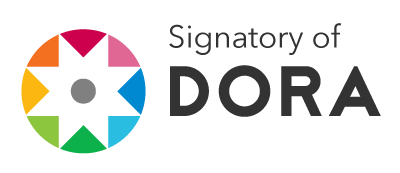Publication ethics
Code of Ethics and Best Practices in Publication
At Verbum et Lingua: Didáctica, Lengua y Cultura, we adhere to the highest standards of ethics in academic publishing. Our code governs the conduct of all involved parties: our steering committee, editorial board, authors, and reviewers. It is based on the principles established by the Committee on Publication Ethics (COPE), founded in 1997. Their guidelines are available at publicationethics.org, specifically their Code of Conduct.
We categorically reject any dishonest practices, and consequences will be applied according to the severity of the situation, always following COPE's guidelines. To ensure originality, all manuscripts undergo a plagiarism analysis using iThenticate software.
Roles and Responsibilities
Below are the responsibilities of each member of our editorial team, aligned with COPE's best practices and Verbum et Lingua's own regulations:
Scientific Committee
The Scientific Committee is crucial for the academic quality and strategic development of the journal:
-
Promotes the submission and dissemination of works within the national and international academic community.
-
Suggests academic guidelines to update editorial policy and advises on defining scientific quality parameters.
-
Participates as reviewers or recommends other experts, and ensures the excellence of processes.
Editorial Board
In line with COPE's guidelines on editorial board participation, Verbum et Lingua: Didáctica, lengua y cultura is committed to:
-
Maintaining transparency, accountability, and integrity in all activities of its editorial board.
-
Establishing a clear policy for the size and composition of the board, including their roles and responsibilities.
-
Defining the process for selecting and appointing board members, as well as the duration of their terms.
-
Establishing a formal process for removing members should they fail to fulfill their responsibilities or violate policy.
-
Expecting board members to review a certain number of manuscripts, serve as ambassadors for the journal, attend meetings, and participate in editorial planning and policy development.
-
Providing clear guidelines on how the editorial board should handle conflicts of interest, complaints, and research misconduct.
Co-Directors
The Co-Directors manage the journal's overall operations and strategy:
-
Convene the Editorial Board and issue calls for papers.
-
Coordinate the editing and publication process, ensuring transparency.
-
Propose the content of each issue to the Editorial Board.
-
Manage resources, distribute the journal, and provide information for indexing.
-
Oversee the journal's web version.
Editor-in-Chief
The Editor-in-Chief coordinates the editorial process and ensures the integrity and quality of publications:
-
Oversees the fulfillment of objectives and ensures a high academic standard.
-
Receives submissions, manages reviews, and monitors compliance with recommendations.
-
Informs authors about the editorial process, maintaining confidentiality.
-
Proposes each issue's content to the Editorial Board.
-
Accepts or rejects articles based on presentation criteria, editorial line, thematic relevance, originality, and scientific merit (their decision is final).
-
Commits to peer-reviewing all original studies that meet initial screening criteria.
-
Ensures manuscripts are reviewed by qualified specialists, providing them with ethical and quality guidelines.
-
Continuously updates the reviewer database.
-
Sends full evaluations to authors (except offensive content, in which case action is taken and the reviewer is removed).
-
Issues fair and impartial review decisions.
-
Informs readers about the impartiality of evaluations by editorial team members and declares conflicts of interest.
-
Publishes apologies, corrections, clarifications, or retractions as needed.
-
Ensures review process information is not used for personal gain and guarantees the responsibility of authors and reviewers.
Guest Editors
The Editorial Board may invite specialists to coordinate specific thematic fascicles:
-
Invites potential authors and reviewers.
-
Collaborates in the academic review process, ensuring quality and double-blind review.
-
Prepares an introductory text that highlights the thematic importance of the fascicle.
Technical Editor or Secretary
This role manages the journal's technical and operational aspects:
-
Applies iThenticate software for plagiarism detection.
-
Coordinates the editorial review process and journal production.
-
Oversees technical processing, style correction, and editing quality.
-
Collaborates to maintain periodicity and ensure dissemination.
-
Keeps information updated for indexing and promotes new inclusions.
-
Verifies DOI numbers, updates metadata, and oversees the creation of XML, HTML, ePUB files, as well as cover design.
-
Manages and updates the OJS platform.
Authors
Authors have crucial responsibilities in the publication process:
-
Register as a user on the Verbum et Lingua website and provide their ORCID iD (mandatory).
-
Comply with publication requirements: originality, unpublished status, and relevance.
-
Present results honestly, without falsification or manipulation of data.
-
Assume collective responsibility for the submitted work.
-
Declare funding sources and potential conflicts of interest.
-
Cite all information sources accurately, including self-citations (maximum three), only if pertinent and not for recycling ideas.
-
Inform about prior or concurrent publications of the same material, providing copies if necessary.
-
Respond to editor observations within 7 calendar days.
-
Obtain authorizations for third-party illustrations or figures.
-
Assign publication rights to the University of Guadalajara via the Assignment of Rights Letter.
-
Submit proof of originality via the Declaration of Originality.
-
Must be registered with Google Scholar.
-
There is a limit of three co-authors, and the number cannot be modified after submission.
-
Two articles by the same author will not be published in the same call for papers or in consecutive issues; a waiting period for new submissions will be required.
Soundness and Reliability
-
Authors must consider reviewers' observations and respond to disagreements in a timely, clear, and justifiedmanner.
-
If an author detects an error in their article, they must immediately inform the editor for rectification.
-
The work must not have been influenced by personal, commercial, religious, political, academic, or financial interests. Any funding received for the research article must be explicitly declared.
Reviewers
Reviewers are essential for the peer-review process and the journal's quality:
-
Accept to review texts within their area of expertise (maximum three weeks) or suggest other evaluators.
-
Respect manuscript confidentiality and declare conflicts of interest.
-
Decline review immediately if unable to meet the deadline.
-
Evaluate objectively based on originality, contribution, methodology, bibliographic relevance, style, coherence, and writing quality.
-
Inform the editor if they lack the necessary expertise in any aspect of the text.
-
Their critiques must be objective, specific, and constructive.
-
Clearly define approval, rejection, or conditional acceptance of the text.
-
Do not use content from the reviewed text or involve third parties in the review.
-
Communicate to the editor if they detect similarity with another text or any type of plagiarism.
-
The evaluation must be objective, clear, and supported by solid arguments, refraining from personal criticism.
-
Transferring review responsibility to another person, assistant, or collaborator is not permitted.
Requirements to Participate as a Reviewer
We seek reviewers with:
-
Recognized trajectory in the journal's thematic fields and training in the thematic axes or related disciplines.
-
Preferably with a doctoral degree and/or affiliation with an educational or research institution (ideally SNI in Mexico).
-
An updated Curriculum Vitae.
-
Must be external to the publishing institution and separate from Editorial Board members.
-
Can be authors of up to 25% of the total annual articles.
-
Can belong to foreign institutions and have published in internationally indexed journals in the previous two years.
-
Their interest in participating will be verified annually; proof of participation will be issued, without fees.
Evaluation Timelines
The editing and publication process is respectful, transparent, and objective. Authors will be informed about the process phase and resolution within the corresponding timelines. We foster appropriate scientific communicationbetween authors and reviewers to ensure manuscript and process quality.
Accusations of Misconduct and Complaints
Misconduct can be identified by any journal stakeholder. Accusations will be addressed only if substantiated with evidence, following COPE's flowcharts adapted to our structure.
Examples of misconduct include: plagiarism, self-plagiarism, prior publication, data falsification.
Misconduct Handling Process:
-
The Editor-in-Chief will contact the accused author to request a response, maintaining the complainant's anonymity.
-
If the response is unsatisfactory, an investigation will be initiated.
-
The Editorial Board will make a collegial decision, which may result in the withdrawal of the article from the review process or publication.
-
In serious cases or legal violations, the case will be referred to the General Counsel's Office of the University of Guadalajara.
-
If deemed useful, the author's institutions and relevant government agencies (e.g., CONACYT in Mexico) may be informed.
-
To prevent plagiarism, all articles undergo iThenticate screening, requiring over 80% originality.
Complaint Handling Process:
-
We receive well-founded complaints from authors, addressing them according to COPE guidelines and our internal rules.
-
Reviewers' identities will never be disclosed.
-
Complaints about the evaluation process will be addressed if the author identifies possible errors in the review, without questioning the reviewer's aptitude.
-
Complaints should be directed to the editor with full argumentation and evidence. The editor may seek support from the Editorial Board.
-
A response to the complaint will be provided within three months.
Plagiarism Detection
For more information on plagiarism management, please refer to the COPE flowchart: https://publicationethics.org/files/Spanish%20%281%29.pdf
Section Policies
Verbum et Lingua publishes various types of contributions, each with specific requirements:
Articles
Articles must be between 6,000 and 8,000 words and are subject to double-blind peer review.
-
Field Research Articles:
-
Structure: Author details (name, affiliation, ORCID, email), title (original language and Spanish/English), bilingual abstract (maximum 250 words) with objective, methodology, results, and conclusions; 5 bilingual keywords. Introduction, methodology, results and discussion, conclusion, references.
-
[Download evaluation form](Formato dictamen Artículo de Investigación - VeL)
-
-
Reflection Articles (Theoretical and Fundamental Contribution):
-
Structure: Author details, title (original language and Spanish/English), bilingual abstract (maximum 250 words) with objective or research question; 5 bilingual keywords. Introduction (justification, problem, hypotheses/scientific objectives, approach), articulated development, conclusions, references.
-
[Download evaluation form](Formato dictamen Artículo de Reflexión - VeL)
-
-
Pedagogical Intervention Articles:
-
Structure: Author details, title (original language and Spanish/English), bilingual abstract (maximum 250 words) with objective or research question; 5 bilingual keywords. Methodology (informants, location, techniques), results (data), conclusions; materials and methods, results, discussion, conclusions, references.
-
[Download evaluation form](Formato dictamen Artículo de Intervención Pedagógica - VeL)
-
Reviews
-
Reviews of books relevant to the journal's thematic axes.
-
Length: between 1,500 and 2,500 words.
-
Subject to double-blind peer review.
-
[Download evaluation form](Formato evaluación de reseñas - VeL)
Interviews
-
Interviews with personalities related to the journal's thematic axes.
-
No word limit and no peer review.
Tributes
-
The Editorial Board reserves the right to publish tributes to the important educational, research, and dissemination work of national and international academics.
Types of Contributions and Submissions
All submitted works must be original and unpublished and must not have been submitted for evaluation to other journals. Please consult our Editorial Guidelines. We accept contributions in German, Spanish, French, English, and Italian.
Submissions should be sent to: verbum@administrativos.udg.mx
Types of Contributions Accepted:
-
Articles: Updates, theoretical discussions, or reports of new field research results on topics of interest within the journal's three axes (6,000 to 8,000 words).
-
Book Reviews: Of a single recently published book or documents of interest to the field (1,500 to 2,500 words).
-
Interviews.
DELEM website: http://www.cucsh.udg.mx/presentaciondeptos/departamento_lenguas_modernas
Archiving and Preservation
This journal uses the LOCKSS system to create a distributed archive among participating libraries, allowing these libraries to create permanent archives of the journal for preservation and restoration purposes.
Peer Review Process
The evaluation of articles consists of two phases:
1. Editorial Review
Upon receipt of the authors' documentation (see Author Guidelines), the Editorial Board begins this review based on established criteria. Priority will be given to texts with electronically managed bibliography and active DOIs. If this phase is approved, the author will be formally notified within a maximum of 45 days of the start of the academic review.
2. Academic Review (Double-Blind)
-
Academic experts in the same disciplinary and thematic area as the submitted text, selected from our pool of national and international reviewers, will provide an academic review.
-
Reviewers will analyze the academic, theoretical, and methodological relevance of each article, checking for the explicit presence and coherence of the theoretical-methodological section, the academic contribution, the relevance of findings, and the currency of the bibliography.
-
Once the reviewers... (the original text cuts off here, so the description of the review completion would follow).
Open Access Policy
At Verbum et Lingua, we firmly embrace the Open Access initiative. All our content is available completely free of charge to the global public immediately after publication. We operate under the Creative Commons (Attribution-NonCommercial) license, fostering dialogue and contributing to knowledge building.
We do not charge authors for submission, review, publication, correction, editing, or any other editorial process. We are committed to disseminating published works through open access indexing services and repositories using Open Archives Initiative-Protocol for Metadata Harvesting (OAI-PMH) protocols.
Readers can access, read, download, copy, cite, share (electronically and physically), print, and distribute the material freely, provided it is clearly and explicitly stated that the work was first published in Verbum et Lingua(verbum@administrativos.udg.mx). It is essential to cite the work correctly and not use it for commercial purposes.
Published material may be used for creating new articles, with prior citation of the original author and the journal, as specified in the Creative Commons 2.5 license for Mexico: https://creativecommons.org/licenses/by-nc-sa/2.5/mx/
Commitment to DORA
In line with the principles of the Declaration on Research Assessment (DORA), Verbum et Lingua: Didáctica, Lengua y Cultura is committed to evaluating research based on its intrinsic scientific merit, rather than solely relying on Journal Impact Factor.
We are dedicated to promoting fair and transparent research assessment, recognizing and valuing a wide range of research outputs, including datasets and software, beyond traditional articles. By adopting these responsible practices, Verbum et Lingua seeks to contribute to a research culture that prioritizes the quality, rigor, and real impact of science.
Copyright
Authors publishing in Verbum et Lingua accept the following conditions:
-
We recognize and respect authors' moral rights, with the economic rights assigned to the University of Guadalajara for open access dissemination.
-
Authors may enter into other independent and additional contractual agreements for non-exclusive distribution of the published article (e.g., in an institutional repository), provided it is clearly and explicitly stated that the work was first published in Verbum et Lingua.
-
Authors must submit the signed Assignment of Rights Letter once the article is accepted for publication.
-
[Download Assignment of Rights Letter - VeL](Carta de Cesión de Derechos - VeL)
-
Originality and Plagiarism
Authors guarantee that the work submitted to the journal is original and unpublished.
Verbum et Lingua defines:
-
Original: A manuscript resulting from the author's own creation, not significantly derived from their or others' previous works; it represents a previously unconceived idea.
-
[Download and sign the Originality Letter](Declaración de originalidad - VeL)
-
-
Unpublished: A manuscript that has not been made public in any other format or medium (e.g., theses, conference papers), and which shows over 80% originality according to our iThenticate analysis.
We categorically reject unacceptable conduct and bad publication practices, whether intentional or unintentional: plagiarism, self-plagiarism, duplicate publication, partial publication, and data falsification/fabrication.
Referencing Guidelines:
-
All sources of information must be cited.
-
Self-citations: A maximum of three in total across all authors, only if pertinent to generate new contributions, not for recycling ideas.
-
A study, whether one's own or another's, should not be repeated in whole or in part.
-
Authors must report details of any related manuscript, published or not.
-
Respect intellectual property, always indicating the source of third-party information.
Authorship
The manuscript must be written with precision and objectivity, based on the veracity of the information and data. All collaborators must have participated in the conception of the manuscript.
-
Limit of three co-authors. The number of co-authors cannot be modified after submission.
-
To ensure good editorial practices, two articles by the same author will not be published in the current call for papers or in consecutive issues; a waiting period for new submissions will be required.












